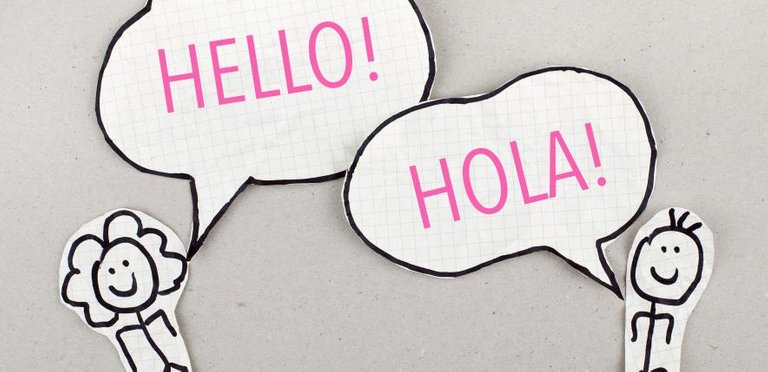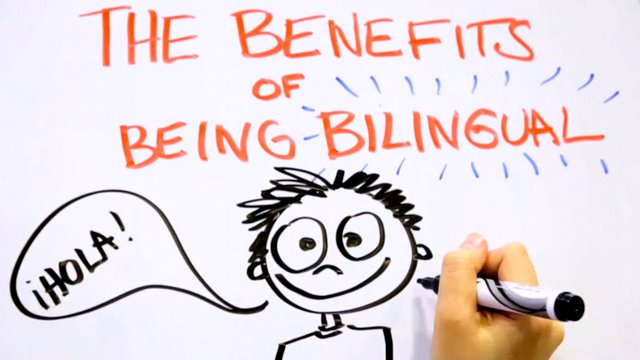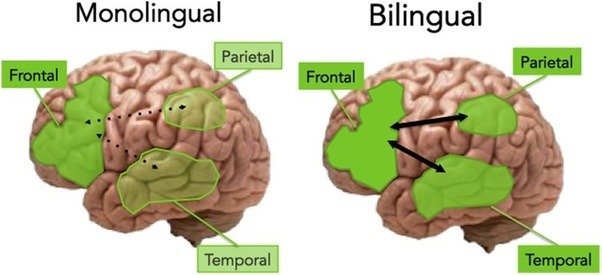Increase vocabulary and cognitive ability

source
There is no doubt that being literate in 2 languages at the same time increases the range of words in any child's vocabulary. Still babies, they already understand that there are different words for the same object and they are also able to differentiate in what language they should communicate with each person and in different contexts.

source
Expand the opening for the variability of sounds
As each language has a different phonetics, sounds and intonations change quite a bit from one language to another. Some research that focuses primarily on understanding how the brain listens to early in life shows the advantages of bilingualism for opening the brain to different sounds.

source
The data collected showed that monolingual babies managed to differentiate sounds of different languages until 6 months of age. However, between 10 and 12 months, this capacity decreased to the point of moving to differentiate only the sounds of the language learned at home. Already with bilingual babies, the opposite happened: between 6 and 9 months of age children could not differentiate sounds, but from 10 to 12 months passed not only to identify how to differentiate the sounds of different languages.
These results show that the simultaneous learning of 2 languages even in the first months of life postpones the narrowing of the perception of the brain, allowing it to understand other sounds that not only those of a language.
Increase the ability to monitor the environment
Begin to communicate early in different languages requires that the child perceives when he has to change the language, especially those who live in bilingual environments, where they talk with the father in one language and with the mother in another, for example. This need to perceive and differentiate the environment allows the bilingual child to better control the changes around him.

source
Prolongs the learning capacity of the brain
You must have already heard that children's learning capacity is much greater in the first years of life, right?
This is even one of the main justifications for learning a new language: it is much easier to learn a new language in childhood. Because that information is true! The ability to learn a new language begins to disappear after the first year of life. But calm down, because nothing is lost! If your child starts learning a new language before that, that learning period will be extended. And the best part is that this does not happen only with respect to a new language.

source
It is more than proven that the brain of a bilingual child remains open for all kinds of learning for much longer! She realized that she has no way to err by placing her child in a bilingual school for babies, is not it? In addition to being a great way to stimulate learning in the early years, that experience will reflect positively in all phases of your child's life.

source
The key is to be familiar with this form of education and choose the bilingual school that best suits your child's profile and the type of education they want to offer. Ready to search?
Source of information
- https://abcnews.go.com/ABC_Univision/benefits-bilingual/story?id=19081887
- http://blog.tutorming.com/mandarin-kids/advantages-to-being-bilingual
- https://www.relocatemagazine.com/education-bilingual-education--a-competitive-advantage-au18
- https://www.bbvaopenmind.com/en/the-advantages-of-a-bilingual-brain/


Posted from my blog with SteemPress : http://ismaelugas.vornix.blog/2018/10/17/bilingual-school-for-babies-5-reasons-to-enroll-your-child-in-a-school-part-vi/